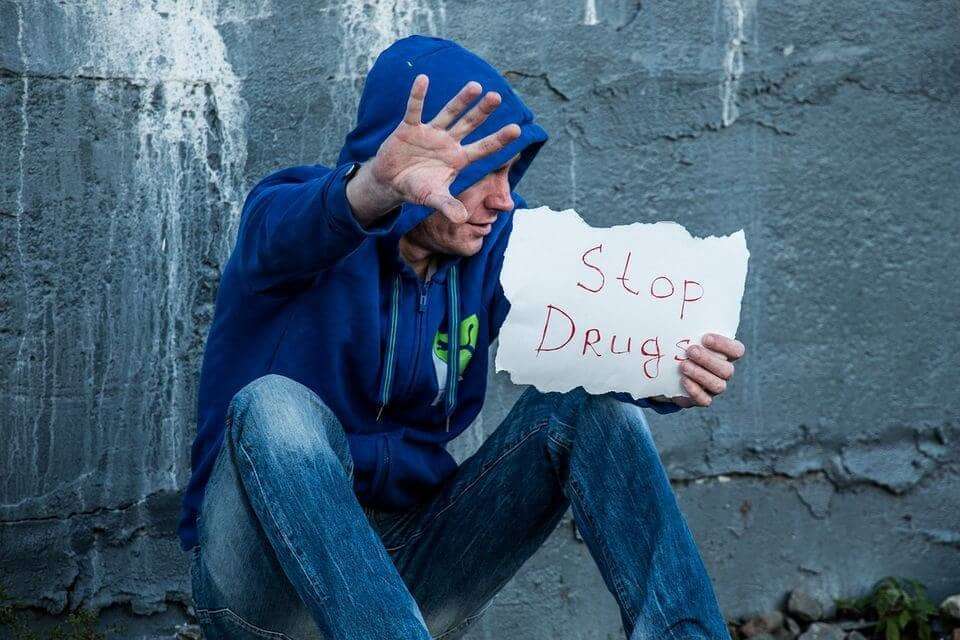So you admitted you have a problem. Maybe you’ve proclaimed yourself as an alcoholic or drug addict, or maybe you simply think that you have developed a bad habit of drinking a few too many on the weekend. Now what? Many people, even those with a serious addiction, don’t instantly jump to the conclusion of “I need to check into a rehab tomorrow” when they realise what’s going on. In fact, most people try to quit addiction on their own, in the beginning.
Rehab Costs & Options for Alcohol | Drugs | Other addictions
Even when you ask your GP or contact a community addiction centre for advice, they will give you various self-help resources to try first. Before you can get a referral to a residential rehab, you will be recommended here first. However, one needs to realise that there is a difference between having a bad habit and having an addiction. While quitting using self-help resources can be useful for some, it is not possible for everyone. In fact, promising that you can quit by yourself may be just another part of the denial process. If you think that you may be lying to yourself, or to those concerned for you, about being able to quit your addiction on your own read on for more information.
Substance Misuse vs. Addiction
When asking if it’s possible to quit an addiction on your own, it is important first to understand what addiction is. You may have heard the terms “substance misuse” or “dependency” used interchangeably with the word “addiction”, but this isn’t completely correct. They are all related, but they are not the same thing. If you have an addiction, this can have consequences for how hard it will be to quit on your own, and what treatment you need.
Substance misuse is using alcohol or drugs in an unintended or excessive way. Perhaps someone was prescribed painkillers after their knee surgery, and continues taking them longer than necessary. Or some people turn to alcohol in times of stress, such as bereavement. Just because someone misuses a substance doesn’t mean they have an addiction. For this, they also need to be dependent on the substance. The person’s mind or body feels like they “need” their substance to go about their day.
Addiction refers to a chronic mental illness characterised by the inability to control one’s habits due to cravings or withdrawal symptoms. This is a complex condition that, according to the DSM-V, needs to fulfil certain criteria of behaviour that combine substance misuse and dependency.
Someone who appears to like to drink a lot, or uses drugs recreationally, isn’t necessarily addicted to the substance. Therefore for them, it may be easy to quit, because they haven’t developed a physical or psychological dependency on their behaviour. It is important to recognise the difference, and establish whether you have an addiction. If you do, it will likely be more difficult to quit on your own.
Factors that Affect Recovery
Regardless of whether a person has an addiction or not, there are also a number of factors that can affect how easy or hard it will be for them to quit and recover. These can include:
-
Substance Type:
Certain substances can be easier to quit than others. Some drugs, such as benzodiazepines, heroin, or even alcohol, can have prolonged and severe withdrawal symptoms that can make quitting tough. In some cases, a medically assisted detox programme is necessary.
-
Length of Use:
The longer you use a substance, the tougher it will be to quit. This is because you will usually develop a tolerance to the substance. Your body or mind may become increasingly dependent on it and exhibit withdrawal symptoms when you quit.
-
Underlying Problems:
A large part of recovery is understanding why you started using in the first place. Quite often, there is an underlying psychological issue, such as depression, anxiety, PTSD or a personality disorder accompanying the addiction. Without addressing it, recovery will likely be very challenging.
-
Genetics and Other Factors:
It is well-known that some groups can be more prone to addiction or have a harder time recovering. This includes women, the elderly, young adults, and veterans. Some people are also genetically predisposed to developing an addiction.
Approaches to Recovery
When trying to address substance misuse, there are several different approaches one can take. Certain methods may be more effective for some than others. In addition, quite often, people will go about their recovery in stages: first, they try natural recovery or self-help methods, then they will try outpatient treatment, and finally, they will attend a residential rehab.
-
Natural Recovery
No treatment, not even AA meetings, you just decide to quit one day, and begin a new healthy lifestyle.
-
Self-Help
This is when a person tries to quit on their own. They may enlist their family or friends to support them or attend mutual-support groups, such as Alcoholics Anonymous or Narcotics Anonymous, but do not receive formal treatment such as therapy.
-
Outpatient Treatment
There are many types of outpatient treatment, and they are all less intense than a residential rehabilitation programme. This can involve counselling or a day-treatment programme, but ultimately, the person goes back to home or work, and retains their day-to-day lifestyle. This can be considered a self-help recovery approach, but with added therapy.
-
Residential Rehab
This is the most intense treatment option, usually consisting of a four-to-six week residential programme where one lives at the treatment centre, and attends a complete treatment schedule throughout the day. When people cannot quit on their own, a residential rehab may be the best solution.
Can self-guided recovery be successful?
According to a study by the National Epidemiologic Survey on Alcohol and Related Conditions (NESARC), self-guided recovery is possible.
This can be explained by the concept of “intrinsic motivation”, when a person is not influenced by a positive or negative reinforcement factor to change their behaviour. In psychology, intrinsic motivation is considered more powerful than punishment. However, it can be extremely difficult for people with an addiction to harness this. The very nature of addiction as a brain disease means that the pleasure-reward pathway has been disrupted. There are also other factors of addiction, such as withdrawal and cravings, that be tricky to overcome.
Lastly, there are a number of situations where quitting an addiction on one’s own is not recommended.
Dangers of Quitting on One’s Own
In some cases, addressing addiction via self-help resources is not advised. Recovery involves many aspects, including detox, therapy and aftercare. In certain situations, going about it solo can lead to failure or other dangerous consequences.
With certain drugs or even prolonged alcohol use, detoxing at home is considered dangerous. Someone who has been drinking heavily for a long period of time can’t easily quit “cold turkey” and this is not recommended in some cases it can be life-threatening.. With drugs such as opiates or benzodiazepines, withdrawal is often lengthy and unpleasant. In these cases, they may require medical supervision or a substitute prescription.
One of the things to watch out for is developing a cross-addiction in the process of recovering from the first addiction. That means a person will trade one addiction for another. For example, somebody who tries to quit cocaine may turn to alcohol instead.
Those with a dual-diagnosis will likely find it harder to quit on their own. In professional treatment programmes, psychological problems should be treated along with the addiction. If you’re going about it solo, you may not be able to address both issues at the same time.
Although relapse is quite common regardless of the treatment approach, trying to quit on one’s own can result in higher failure rates. The person may use justification, such as, “I’ll have just one more drink” or “I can minimise my use” and end up falling off the bandwagon instead.
Getting professional treatment
If you’re reading this article, you may be looking for self-help addiction treatment because you want to avoid professional treatment. However, you have to ask yourself why you’re doing this.
Shame and stigma often come to mind when people think about drug or alcohol addiction. You may not want to publicise that you are going into an addiction treatment programme because it’ll make you look bad. You have to realise that the potential damage caused by not getting sober will likely outweigh the short period of embarrassment.
In addition, you may not want to go to inpatient facilities because of a fear you will lose their job or forgo time spent with family. Inpatient treatment may force you to take some time off to get better, but because the programmes are more intense, you will ultimately spend less time in treatment than in an outpatient or day-treatment programme.
Many people also avoid residential treatment facilities or even professional treatment programmes because of cost, thinking that these options are expensive. This is not necessarily true. There are a number of community programmes offering counselling and therapy that are free to access. Even residential rehabs don’t have to cost much, or they can be covered by either the NHS or private insurance.
Self-Help Guide on How to Quit Addiction
It is possible to quit substance use or an addiction on your own, but it is not always a plausible choice for everyone. While you’re in a self-guided recovery, it is wise to look into alternative options, and maybe contact a rehab centre or two about their treatment programmes. That way, when you’re ready for serious treatment, you will know what to do and where to go.
In the meantime, if you are determined to try to quit on your own, try following these recommendations:
-
Find friends and support:
There is nothing more important than having support during recovery. You will need someone (or somewhere) to go to when you have a craving, and you’ll need someone you can depend on to steer you away from temptation. Fellowship meetings and sponsors are very helpful in this aspect.
-
Strive for a goal:
Have a large goal to strive for. For example, once you get sober, you can finish your degree and one day get your dream job! Or maybe, once you stop using, you can spend more time with your family.
-
Find your “higher power”:
It’s helpful to have a role model or something that gives you powerful inspiration. Someone you want to impress or don’t want to let down. For example, if you have children, you can always remind yourself that they’ll be disappointed if you continue to use.
-
Build a self-care routine:
Most people who quit on their own first started eating healthier and exercising. Taking care of yourself is a great motivating factor because it feels almost like immediate gratification. With an organised routine, you will start to feel better quickly, and distract yourself from cravings or withdrawal. Plus, exercise acts as a natural antidepressant.
Replacing bad habits with good ones is always a positive step.
-
Learn and educate yourself:
Learning more about excessive drinking or the substance(s) that you’re using can motivate you to quit because you’ll be aware of the potential risks involved. Also, reading or listening to other people’s stories about recovery can not only get you in the right mindset but also show you that you’re not alone in your journey to recovery.
-
Create your backup plan:
Plan how long you will allow yourself to try to quit on your own, and decide what you will do if it doesn’t work out. Perhaps you’ll decide that if you relapse more than three times, you will immediately seek professional help. Or if your cravings are unbearable after one month, you will join an outpatient programme. Make a promise to yourself, and ideally to someone else, and stick to it.
If you do think that you need help to quit your addiction, and can’t do it on your own, give us a call and we can talk about your options. We have 30 years of experience helping people overcome addiction and get into successful recovery. With our team of medical experts and professional therapists, we can help make your recovery a reality.


